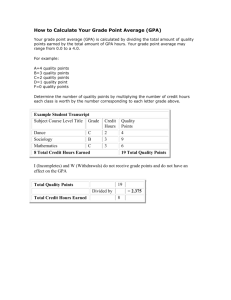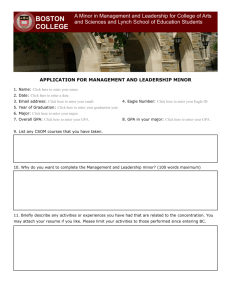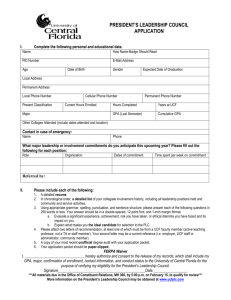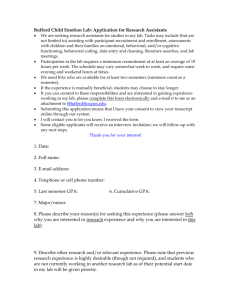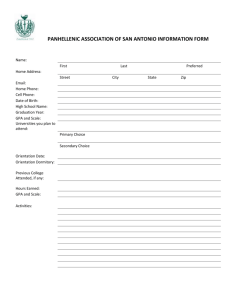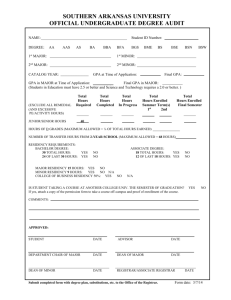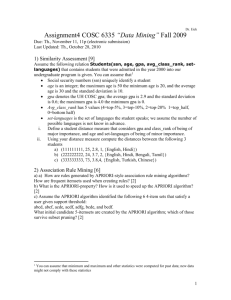3 - WordPress.com
advertisement
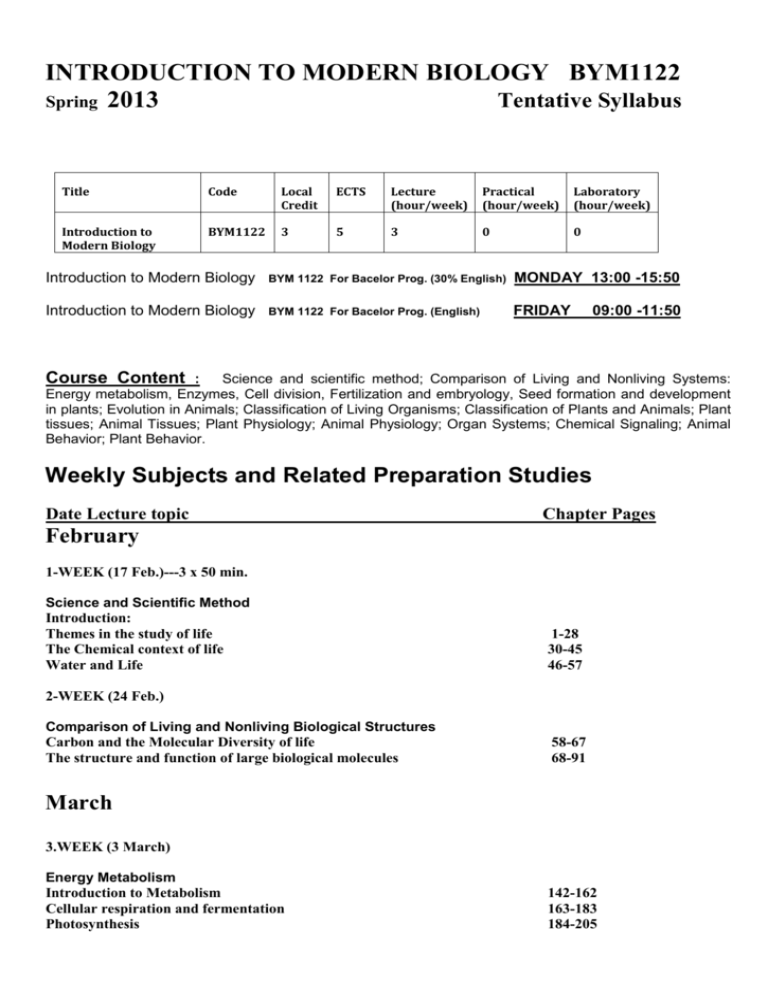
INTRODUCTION TO MODERN BIOLOGY BYM1122 Spring 2013 Tentative Syllabus Title Code Local Credit ECTS Lecture (hour/week) Practical (hour/week) Laboratory (hour/week) Introduction to Modern Biology BYM1122 3 5 3 0 0 Introduction to Modern Biology BYM 1122 For Bacelor Prog. (30% English) MONDAY 13:00 -15:50 Introduction to Modern Biology BYM 1122 For Bacelor Prog. (English) FRIDAY 09:00 -11:50 Course Content : Science and scientific method; Comparison of Living and Nonliving Systems: Energy metabolism, Enzymes, Cell division, Fertilization and embryology, Seed formation and development in plants; Evolution in Animals; Classification of Living Organisms; Classification of Plants and Animals; Plant tissues; Animal Tissues; Plant Physiology; Animal Physiology; Organ Systems; Chemical Signaling; Animal Behavior; Plant Behavior. Weekly Subjects and Related Preparation Studies Date Lecture topic Chapter Pages February 1-WEEK (17 Feb.)---3 x 50 min. Science and Scientific Method Introduction: Themes in the study of life The Chemical context of life Water and Life 1-28 30-45 46-57 2-WEEK (24 Feb.) Comparison of Living and Nonliving Biological Structures Carbon and the Molecular Diversity of life The structure and function of large biological molecules 58-67 68-91 March 3.WEEK (3 March) Energy Metabolism Introduction to Metabolism Cellular respiration and fermentation Photosynthesis 142-162 163-183 184-205 4.WEEK (10 March) Cell Division The Cell cycle Meiosis and sexual life cycles 228-245 246-261 5.WEEK (17 March) Fertilization and embryology Fertilization Embryology 996-1020 1021-1044 6.WEEK (24 March) Seed formation and development in plants Plant structure Growth and development Angiosperm Reproduction 738-763 801-813 7.WEEK (31 March) Evolution in Animals Mechaanisms of Evolution 422-533 April 8.WEEK (7 April) Classification of Living Creatures The Evolutionary History and Biological Diversity 536-736 Additional exam materials and rewiev lecture notes will be at a studies course ………………. 9.WEEK ( 2. WEEK OF APRIL) EXAM-I (multiple choise, fill in the blanks, matching, short answer, short explanation) 10.WEEK (21 April) Classification of Plants and Animals Plant diversity I Plant Diversity II 600-617 618-635 11.WEEK (28 April) Plant and Animal Tissues Plant structure Basic principlas of Animal Form 738-763 852-860 May 12.WEEK (5 May) Plant and Animal Physiology Plant Physiology Animal Physiology 764-831 875-953 13.WEEK (12 May) Organ Systems 953-996 14.WEEK (19 May) 19 May Youth and Sport Day ….Have a nice holiday (MONDAY) Additional exam materials and rewiev lecture notes (EXCEPT MONDAY) 15.WEEK (26 May) Animals and Plants Behavior Plant responses Animal Behavior 821-849 1118-1141 Additional Final Exam materials and rewiev lecture notes will be at studie scourse ………. June 02-13 FINAL EXAMINATIONs The Final Exam is not scheduled. It will be approximately 2/3 short answer and 1/3 comprehensive. Note that the final exam includes all lectures. Good luck. Evaluation System Activities Number Attendance/Participation Laboratory Application Field Work Special Course Internship (Work Placement) Quizzes/Studio Critics Homework Assignments 1 Presentations/Jury Project Seminar/Workshop Mid-Terms 1 Final 1 Percentage of In-Term Studies Percentage of Final Examination TOTAL Percentage of Grade 20 40 40 60 40 100 ECTS Workload Table Activities Course Hours Laboratory Application Field Work Study Hours Out of Class Special Course Internship (Work Placement) Homework Assignments Quizzes/Studio Critics Project Presentations / Seminar Mid-Terms (Examination Duration + Examination Prep. Duration) Final (Examination Duration + Examination Prep. Duration) Number Duration(Hour) Total Workload 14 3 42 14 4 56 1 16 16 1 1 16 20 Total Workload : Total Workload / 30(h) : ECTS Credit : 16 20 150 5.00 5 The Final Exam is not scheduled It will be approximately 2/3 short answer and 1/3 comprehensive. Note that the final exam will be from page 1to 380. Good luck. Achievement Grade (1) In determining a grade, relative evaluation system is used. Achievement Grade is designated as follows: a) The meanings of the achievement grades are defined as follows: Achievement Grade Coefficient Achievement Degree AA 4.00 Excellent BA 3.50 Very good BB 3.00 Good CB 2.50 Average CC 2.00 Satisfactory DC 1.50 Provisionally Successful DD 1.00 Fail FD 0.50 Fail FF 0.00 Fail F0 0.00 NA G: Pass K: Fail İ: Leave of Absence M: Exemption E: Incomplete 2) (DC) indicates that the student has been provisionally successful in a course. For a student to be considered successful in a course, he must have a minimum GPA of 2.0. If a student has courses in which he has been provisionally successful in his instructional plan, he must have a minimum GPA of 2.0 to qualify for graduation. And, this course is included in his GPA. 3) G (Pass) indicates that the student has been successful/satisfactory in a course and not included in his GPA. 4) K (Fail) indicates that the student has been unsuccessful/unsatisfactory in a course and not included in his GPA. 5) İ (Leave of Absence) indicates that the student has been unable to complete the requirements of a course because of sickness or some other valid reason pursuant to the relevant provision of this Regulation and is not included in GPA until it is transformed into an achievement grade. If this course is not completed the following semester in which the course is available, İ automatically turns into an FF. 6) M (Exemption) indicates that the student have exemption for the previous program courses which are deemed equivalent to the courses offered in their new undergraduate program. Decision for the course exemption is made by the relevant faculty committee. The courses that student is exempt from are processed as a non-credit exemption and they are not included in the student’s GPA. Y Textbook: You can find the each lecture notes as a part of textbook at site is http://biolecturenotes.wordpress.com/ You should download the link at that site before the lecture becouse you will not find the link after 2 days from lecture day. If you buy the text book : 187$ at Amazon.com CAMPBELL B I O L O G Y HEDITION Jane B. Reece Berkeley, California Lisa A. Urry Mills College, Oakland, California Michael L. Cain Bowdoin College, Brunswick, Maine Steven A. Wasserman University of California, San Diego Peter V. Minorsky Mercy College, Dobbs Ferry, New York Robert B. Jackson Duke University, Durham, North Carolina Exam material: For best performance, read the colored texts on textbooknotes before attending lecture and review lecture notes after each class. Study your notes carefully and review the major topics provided in the text prior to each exam. You will find a Sample exam are available in the site before the Exam. These sample exam should be used as a study guide and not as the sole source for exam preparation. Exams: Translation dictionaries are not permitted during the exam. Semester exams and the final exam will consist mostly of multiple-choice, matching, true-false, short answer, and short essay questions. . Make-up exams will usually consist of long essay questions. Cheating: All work should be that of the student alone. No communication, notes, or wireless devices are permitted during any exam. If the instructor determines that a student has cheated on an exam or any assignment, the student will receive no credit for that exam or assignment and the student’s name will be reported to the proper authorities.
